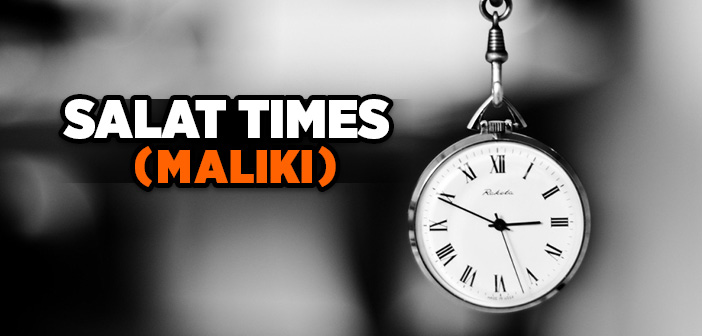What is salat times?
I. The Five Daily Prayers and the Time of the Salat al-Jum’ah
Each of the five daily prayers has two time periods that are known as the ‘’voluntary/optional’’ and ‘’necessary/compulsory’’ waqts. It is considered jaiz to pray at anytime of the voluntary waqt. The necessary waqt is particular to those who have an excuse. Down below, we are going to dicuss the voluntary and necessary waqts for each of the prayers.
a) The Voluntary Waqts:
- For the Fajr salat, it starts from the rising of the sun and continues up to the time where the atmosphere really starts to brighten up.
- For the dhuhr salat, it starts from the zawal time, in other words when the sun starts to move towards the West, and continues up to the time where everythings shadow is as as big as it is.
- For the Asr salat, it starts from the time when everythings shadow is as big as it and continues up to the time the sun has yellowed.
- For the Maghrib salat, it starts from the time the sun sets and continues up to the time when enough time goes by that it will be possible to fit in the prayer, after the conditions have been actualised.
- For the Isha salat, it starts from the moment the red dawn disappears and continues up to the end of the first one third of the night.
b) The Necessary Waqts
- For the Fajr salat, it starts from the time the environment really starts to brighten up and it continues up to the rising of the sun.
- For the dhuhr salat, it starts from the time where everythings shadow is twice as big as itself and continues up to the time the sun sets.
- For the Asr salat, it starts from the time the sun starts to yellow and continues up to the time the sun sets.
- For the Maghrib salat, it starts from the time that the salat can be prayed after the conditions have been actualised and it continues up to the rising of the sun.
- For the Isha prayer, it starts from the second two thirds of the night and it continues up to the time of the rising of the sun.
II. Some Rulings Related to the Waqts
Praying the salat in its first waqt is the most virtuous action. However it is considered mandub for people who delay praying their salat just a little because of their desire to pray with the jamaat or with the aim of wanting to increase the number of people in the jamaat.
Whether it is voluntary or necessary, when a rakat is carried out with its two sujud, the person is considered to have caught up with that rakat.
There is no sin for the person who delays their prayer to the end of the voluntary waqt. But the person will have sinned when they delay their salat to the necessary waqt without having a valid excuse.
There will be no sin for the person who delays their salat to the necessary waqt when these circumstances are found: The person becoming a Muslim when they were previously a kafir, the child reaching puberty, fainting, becoming maddened, the person who can not find water for wudhu or soil for tayammum, menstruation, the period after childbirth, sleeping, carelessness, to feel drunkenness without a haram reason such as taking something, for example medicine etc.
When these circumstances are removed and after the wudhu has been performed, these will be looked at if there is enough time to pray a rakat with its two sujuds:
- If it is the Fajr time it is required of the person to pray the Fajr salat, the obligation of praying other salat will be removed.
- If there is only enough time to pray just one, two, three or four rakat, it will be too late to pray the dhuhr salat, it will be required of the person to pray the Asr salat.
- If there is only enough time left to pray less than four rakats it will not be possible to pray the Maghrib salat, it will be required of the person to pray the Isha salat.
In some times, it is not appropriate to pray the nafilah prayers. It is considered haram to pray the nafilah prayer in these seven waqts:
- When the sun is rising,
- When the sun is setting,
- When the Jum’ah khutba is being read,
- When the imam is on the minbar with the purpose of reading the khutba,
- When the person is in a hurry to pray the fard of the waqt,
- When it is remembered that a prayer has not been prayed,
- When the kamet is being read for the waqt prayer,
It is considered makruh to pray the nafilah prayer after the rising of the sun and after the Asr salat.
There is no makruh in these six nafilah prayers: The two-rakat nafilah salat that is prayed before witr, the witr salat, the sunnah of the Fajr salat that is prayed before or after the atmosphere has brightened, the janazah salat, to make the tilawah sujud before the atmosphere brightens or before the sun yellows. It is considered makruh to carry out the two last ones after the atmosphere has brightened and after the sun has yellowed
III. The Waqt of the Eid, Taraweeh and Witr Prayers
- The Waqt of the Eid prayer: This starts after the sun has risen up to about the height of a spear (this is about 40-50 minutes after the sun has risen), and it continues up until the istiwa waqt (when the sun is right in the middle of the sky). It is haram to pray when the sun is rising and this prayer will be considered invalid. It is makruh to pray after the sun has rosen up to about the height of a spear.
- The Waqt of the Taraweeh Prayer: This prayer is peculiar to the month of Ramadhan, it starts after the Isha salat has been prayed and it continues up to the time of the Fajr salat. Because the taraweeh prayer is a sunnah that is connected to the Isha salat, it can also be prayed before the witr prayer. However the tradition is to first pray the taraweeh prayer and then to pray the witr afterwards.
- The Waqt of the Witr Prayer: The time of this starts after the Isha salat has been prayed in a sahih manner and after the red dawn has disappeared. It is more virtuous to pray this prayer at night, at the time of tahajjud and to pray it as the last prayer after the taraweeh prayer in Ramadhan.
Source: Fiqh1 (According To The Maliki School Of Islamic Law), Erkam Publications





